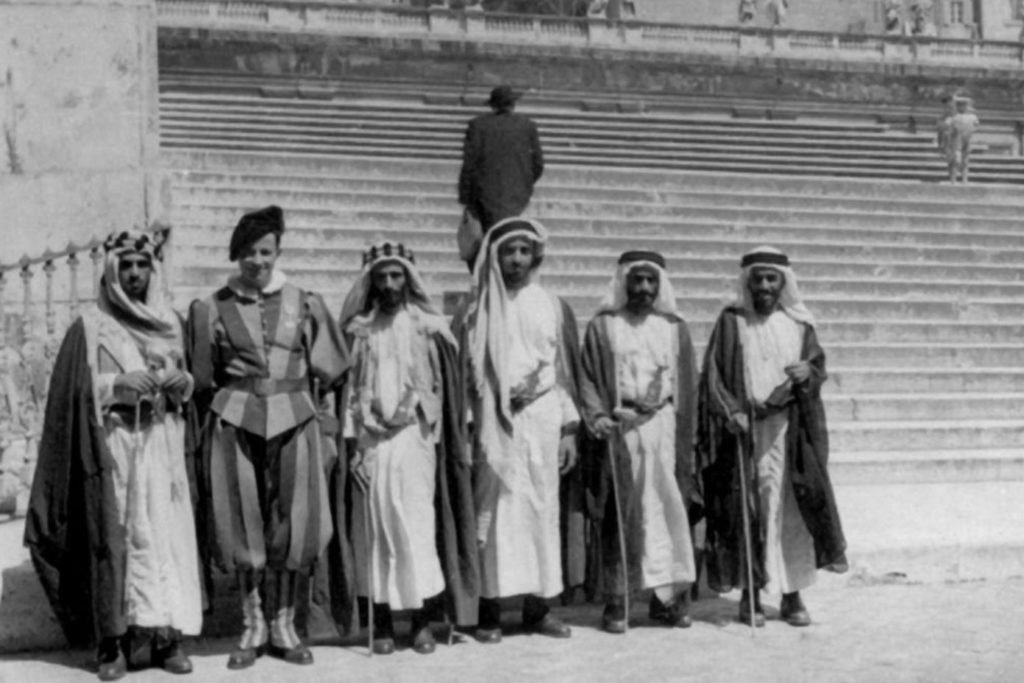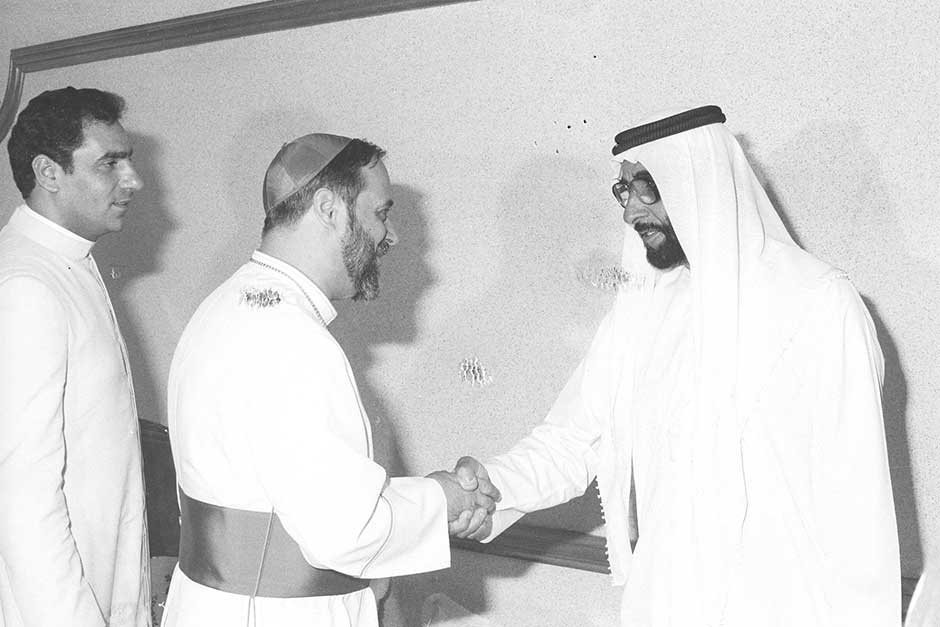For the late Sheikh Zayed bin Sultan Al Nahyan, the first president of the UAE, love of humanity was not only a way of life, but also a core leadership strategy firmly rooted in Islamic faith and Bedouin tradition.

In 1951, a delegation of Emirati leaders including Sheikh Zayed traveled to Europe for the first time. The group visited many cultural and religious sites, among them the Vatican and the Notre Dame Cathedral in Paris.
Several years later in the UAE, the first piece of land was donated by the government for the construction of a Catholic Church, which would serve the newly arriving oil and gas workers. Many similar land donations followed over the years that accommodated Christian, Sikh, Hindu, and other religious communities.
Sheikh Zayed believed in the importance of Arab unity and international partnerships, which he pursued through a foreign policy defined by an openness to all nations, regardless of religion or political ideology. From his earliest days as a ruler, Sheikh Zayed led through consensus-seeking and conversation rather than through coercion or force.
His guiding objectives were the facilitation of domestic development and the assurance of prosperity and peace for his country, never external interference. Travelling extensively over the course of his 32 years as president, Sheikh Zayed built friendships with many great world leaders, from Nelson Mandela to Queen Elizabeth. And it was through these relationships, built upon mutual respect and understanding, that the foundations for the strategic and peaceful partnerships that the UAE enjoys today, with Arab neighbours and non-Arab nations alike, were established.
"The true Muslim is friendly to all human beings
and a brother to other Muslims and non-Muslims alike.
This is because Islam is a religion of mercy and tolerance"
His Highness Sheikh Zayed

Today, Sheikh Zayed’s historic vision is brightly reflected in a thriving and tolerant nation comprising more than 200 nationalities. The UAE boasts a 93 percent literacy rate, 12 million tourists visit annually, and 70 percent of all university graduates are women. UAE aid and development efforts serve 147 countries of various religious and cultural backgrounds, and have been identified as the highest in the world for five years in relation to gross national income. The country is home to more than 40 churches and other places of worship as well as to numerous internationally acclaimed centers of learning and culture, such as the Sorbonne University, New York University, the Massachusetts Institute of Technology (MIT), and the Louvre Abu Dhabi. The values of tolerance, religious freedom and mutual respect are ingrained in the UAE’s DNA and have shaped its culture.
Sheikh Zayed’s belief that everyone benefits when a country invests in relationships has forged the UAE into a role model for a region and world too often defined by tumult and instability. Nurturing relationships with foreign governments and societies; establishing new friendships; and promoting tolerance, mutual respect, and cross-cultural dialogue through cultural diplomacy will ensure Sheikh Zayed’s legacy and with it a future marked by hope.